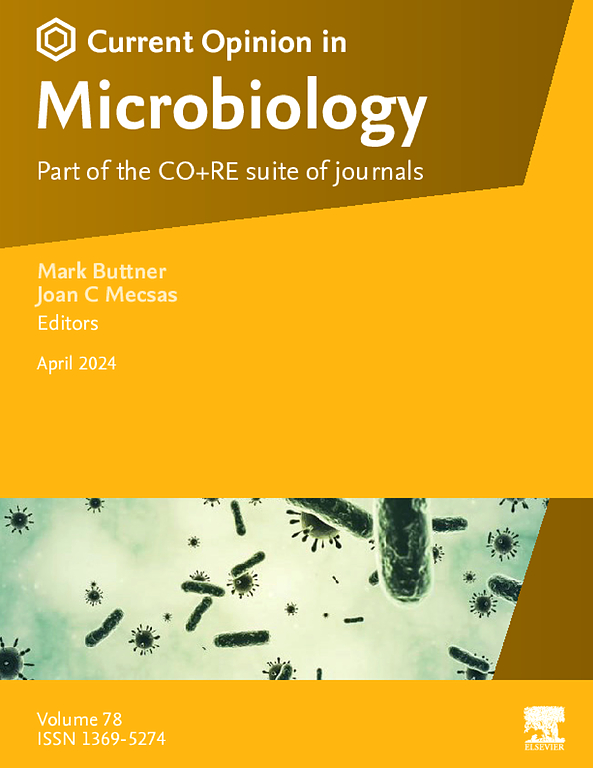The role of microbial succinate in the pathophysiology of inflammatory bowel disease: mechanisms and therapeutic potential
IF 7.5
2区 生物学
Q1 MICROBIOLOGY
引用次数: 0
Abstract
Inflammatory bowel disease (IBD) is a chronic immune-mediated condition linked to gut microbiota dysbiosis and altered production of bacterial metabolites, including succinate, which is also a key intermediate in human mitochondrial energy metabolism in human cells. Succinate levels in the gut are influenced by microbial community dynamics and cross-feeding interactions, highlighting its dual metabolic and ecological importance. Extracellular succinate acts as a key signaling metabolite linking microbial metabolism to host physiology, with transient rises supporting metabolic regulation but chronic elevations contributing to metabolic disorders and disease progression. Succinate signals through its cognate receptor SUCNR1, which mediates adaptive metabolic responses under normal conditions but drives inflammation and fibrosis when dysregulated.
IBD patients display a dysbiotic gut microbiota characterized by an increased prevalence of succinate-producing bacteria, contributing to elevated succinate levels in the gut and circulation. This imbalance drives inflammation, worsens IBD severity, and contributes to complications like Clostridioides difficile infection and fibrosis. Emerging evidence highlights the potential of intestinal and systemic succinate levels as indicators of microbial dysbiosis, with a bidirectional relationship between microbial composition and succinate metabolism. Understanding the factors influencing succinate levels and their interaction with dysbiosis shows promise in the development of therapeutic strategies to restore microbial balance. Approaches such as dietary fiber enrichment, prebiotics, and probiotics to enhance succinate-consuming bacteria, combined with targeted modulation of succinate pathways (e.g. SDH inhibitors, SUCNR1 antagonists), hold promise for mitigating inflammation and improving gut health in IBD.
微生物琥珀酸盐在炎症性肠病病理生理中的作用:机制和治疗潜力
炎症性肠病(IBD)是一种由免疫介导的慢性疾病,与肠道微生物群失调和细菌代谢产物(包括琥珀酸)的产生改变有关。琥珀酸盐在肠道中的含量受微生物群落动态和交叉进食相互作用的影响,凸显了其在代谢和生态方面的双重重要性。细胞外琥珀酸盐是连接微生物代谢和宿主生理的关键信号代谢物,瞬时升高支持代谢调节,而长期升高则导致代谢紊乱和疾病进展。琥珀酸通过其同源受体 SUCNR1 发出信号,该受体在正常情况下可介导适应性代谢反应,但在调节失调时则会导致炎症和纤维化。IBD 患者的肠道微生物群表现为菌群失调,其特点是产琥珀酸细菌的数量增加,导致肠道和血液循环中的琥珀酸水平升高。这种失衡会引发炎症,加重 IBD 的严重程度,并导致艰难梭菌感染和纤维化等并发症。新出现的证据强调,肠道和全身的琥珀酸水平可能是微生物菌群失调的指标,微生物组成和琥珀酸代谢之间存在双向关系。了解影响琥珀酸含量的因素及其与菌群失调之间的相互作用,有助于制定恢复微生物平衡的治疗策略。富含膳食纤维、益生元和益生菌等方法可提高琥珀酸消耗菌的数量,结合琥珀酸途径的靶向调节(如 SDH 抑制剂、SUCNR1 拮抗剂),有望减轻炎症并改善 IBD 患者的肠道健康。
本文章由计算机程序翻译,如有差异,请以英文原文为准。
求助全文
约1分钟内获得全文
求助全文
来源期刊

Current opinion in microbiology
生物-微生物学
CiteScore
10.00
自引率
0.00%
发文量
114
审稿时长
6-12 weeks
期刊介绍:
Current Opinion in Microbiology is a systematic review journal that aims to provide specialists with a unique and educational platform to keep up-to-date with the expanding volume of information published in the field of microbiology. It consists of 6 issues per year covering the following 11 sections, each of which is reviewed once a year:
Host-microbe interactions: bacteria
Cell regulation
Environmental microbiology
Host-microbe interactions: fungi/parasites/viruses
Antimicrobials
Microbial systems biology
Growth and development: eukaryotes/prokaryotes
 求助内容:
求助内容: 应助结果提醒方式:
应助结果提醒方式:


